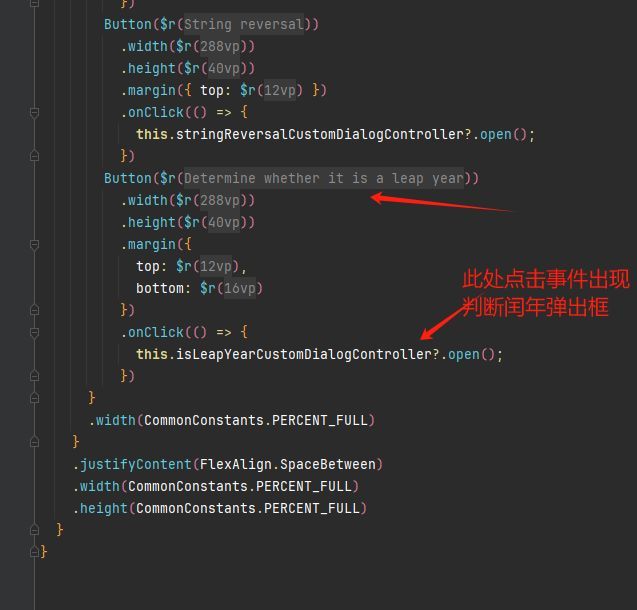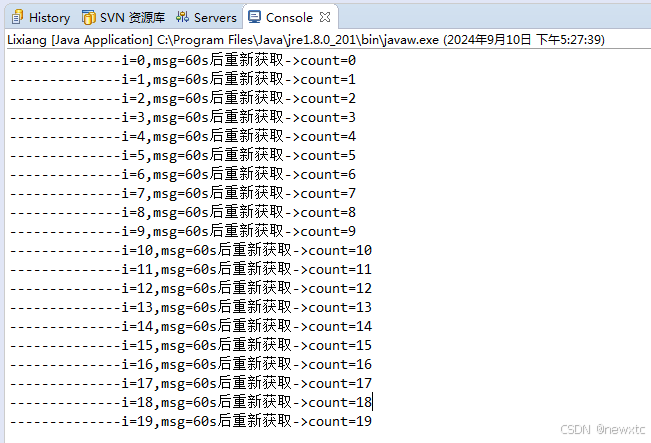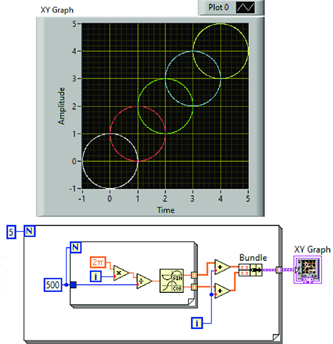文章目录
- 【 1. 首个不小于 lower_bound 】
- 【 2. 首个大于 upper_bound 】
- 【 3. 所有等于 equel_range 】
- 【 4. 二分查找 binary_search 】
- 当 指定区域内的数据处于有序状态 时,如果想查找某个目标元素,更推荐使用二分查找的方法(相比顺序查找,二分查找的执行效率更高)。
- C++ STL标准库中提供有 lower_bound()、upper_bound()、equal_range() 以及 binary_search() 这 4 个查找函数,它们的底层实现采用的都是 二分查找 的方式。
- 头文件 <algorithm>
【 1. 首个不小于 lower_bound 】
- lower_bound() 函数用于在指定区域内 查找 首个不小于目标值 的元素。
- 基本语法
- first 和 last 都为正向迭代器,[first, last) 是指定查找范围,该 指定区域内必须已排序 。
- val 为指定目标值。
- comp 用于自定义比较规则,此参数可以接收一个包含 2 个形参(第二个形参值始终为 val)且返回值为 bool 类型的函数,可以是普通函数,也可以是函数对象。
- 该函数会 返回一个正向迭代器,当查找成功时,迭代器指向找到的元素;反之,若查找失败,迭代器的指向和 last 迭代器相同。
//在 [first, last) 区域内查找不小于 val 的元素
ForwardIterator lower_bound (ForwardIterator first, ForwardIterator last,const T& val);
//在 [first, last) 区域内查找第一个不符合 comp 规则的元素
ForwardIterator lower_bound (ForwardIterator first, ForwardIterator last,const T& val, Compare comp);
- 实例
#include <iostream>
#include <algorithm>
#include <vector>
using namespace std;
//以普通函数的方式定义查找规则
bool mycomp(int i, int j) { return i > j; }
//以函数对象的形式定义查找规则
class mycomp2 {
public:
bool operator()(const int& i, const int& j) {
return i < j;
}
};
int main() {
//从 a 数组中找到第一个不小于 3 的元素
int a[5] = { 1,2,3,4,5 };
int* p = lower_bound(a, a + 5, 3);
cout << "*p = " << *p << endl;
//根据 mycomp2 规则,从 myvector 容器中找到第一个违背 mycomp2 规则的元素
vector<int> myvector{ 1,2,3,4,5 };
vector<int>::iterator iter = lower_bound(myvector.begin(), myvector.end(), 3, mycomp2());
cout << "*iter = " << *iter;
return 0;
}

- lower_bound() 函数底层实现的参考代码
template <class ForwardIterator, class T>
ForwardIterator lower_bound (ForwardIterator first, ForwardIterator last, const T& val)
{
ForwardIterator it;
iterator_traits<ForwardIterator>::difference_type count, step;
count = distance(first,last);
while (count>0)
{
it = first; step=count/2; advance (it,step);
if (*it<val) { //或者 if (comp(*it,val)),对应第 2 种语法格式
first=++it;
count-=step+1;
}
else count=step;
}
return first;
}
【 2. 首个大于 upper_bound 】
- upper_bound() 函数 用于在指定范围内 查找 首个大于目标值 的元素。
- 基本语法
- first 和 last 都为正向迭代器,[first, last) 是查找范围,该 指定区域内必须已排序 。
- val 为指定目标值。
- comp 作用自定义查找规则,此参数可接收一个包含 2 个形参(第一个形参值始终为 val)且返回值为 bool 类型的函数,可以是普通函数,也可以是函数对象。
- 该函数会 返回一个正向迭代器,当查找成功时,迭代器指向找到的元素;反之,若查找失败,迭代器的指向和 last 迭代器相同。
//查找[first, last)区域中第一个大于 val 的元素。
ForwardIterator upper_bound (ForwardIterator first, ForwardIterator last,const T& val);
//查找[first, last)区域中第一个不符合 comp 规则的元素
ForwardIterator upper_bound (ForwardIterator first, ForwardIterator last,const T& val, Compare comp);
- 实例
#include <iostream>
#include <algorithm>
#include <vector>
using namespace std;
//以普通函数的方式定义查找规则
bool mycomp(int i, int j) { return i > j; }
//以函数对象的形式定义查找规则
class mycomp2 {
public:
bool operator()(const int& i, const int& j) {
return i < j;
}
};
int main() {
//从 a 数组中找到第一个大于 3 的元素
int a[5] = { 1,2,3,4,5 };
int* p = upper_bound(a, a + 5, 3);
cout << "*p = " << *p << endl;
//根据 mycomp2 规则,从 myvector 容器中找到第一个违背 mycomp2 规则的元素
vector<int> myvector{ 1,2,3,4,5 };
vector<int>::iterator iter = upper_bound(myvector.begin(), myvector.end(), 3, mycomp2());
cout << "*iter = " << *iter;
return 0;
}

- upper_bound() 函数底层实现的参考代码
template <class ForwardIterator, class T>
ForwardIterator upper_bound (ForwardIterator first, ForwardIterator last, const T& val)
{
ForwardIterator it;
iterator_traits<ForwardIterator>::difference_type count, step;
count = std::distance(first,last);
while (count>0)
{
it = first; step=count/2; std::advance (it,step);
if (!(val<*it)) // 或者 if (!comp(val,*it)), 对应第二种语法格式
{ first=++it; count-=step+1; }
else count=step;
}
return first;
}
【 3. 所有等于 equel_range 】
- equel_range() 函数用于在指定范围内查找 所有等于目标值的元素 。
- 基本语法
- first 和 last 都为正向迭代器,[first, last) 是查找范围,该 指定区域内必须已排序 。
- val 为指定目标值。
- comp 作用自定义查找规则,此参数可接收一个包含 2 个形参(第一个形参值始终为 val)且返回值为 bool 类型的函数,可以是普通函数,也可以是函数对象。
- 该函数会 返回一个 pair 类型值 ,其包含 2 个正向迭代器。
- 查找成功时:第 1 个迭代器指向的是 [first, last) 区域中 第一个等于 val 的元素;第 2 个迭代器指向的是 [first, last) 区域中 第一个大于 val 的元素 。
- 查找失败时:这 2 个迭代器要么 都指向大于 val 的第一个元素(如果有),要么 都和 last 迭代器指向相同 。
| 类型 | 基本语法1 | 基本语法2 |
|---|---|---|
| 条件 | 指定范围内的数据支持用 < 小于运算符直接做比较 | 指定范围内的数据为自定义的类型(用结构体或类),就需要自定义比较规则 |
| 语法 | //找到 [first, last) 范围中所有等于 val 的元素 pair<ForwardIterator,ForwardIterator> equal_range (ForwardIterator first, ForwardIterator last, const T& val); | //找到 [first, last) 范围内所有等于 val 的元素 pair<ForwardIterator,ForwardIterator> equal_range (ForwardIterator first, ForwardIterator last, const T& val, Compare comp); |
- 实例
#include <iostream>
#include <algorithm>
#include <vector>
using namespace std;
//以普通函数的方式定义查找规则
bool mycomp(int i, int j) { return i > j; }
//以函数对象的形式定义查找规则
class mycomp2 {
public:
bool operator()(const int& i, const int& j) {
return i > j;
}
};
int main() {
//从 a 数组中找到所有的元素 4
int a[9] = { 1,2,3,4,4,4,5,6,7 };
pair<int*, int*> range = equal_range(a, a + 9, 4);
cout << "a[9]:";
for (int* p = range.first; p < range.second; ++p) {
cout << *p << " ";
}
//在 myvector 容器中找到所有的元素 3
vector<int>myvector{ 7,8,5,4,3,3,3,3,2,1 };
pair<vector<int>::iterator, vector<int>::iterator> range2;
range2 = equal_range(myvector.begin(), myvector.end(), 3, mycomp2());
cout << "\nmyvector:";
for (auto it = range2.first; it != range2.second; ++it) {
cout << *it << " ";
}
return 0;
}

- equel_range() 函数底层实现的参考代码
//对应第一种语法格式
template <class ForwardIterator, class T>
pair<ForwardIterator,ForwardIterator> equal_range (ForwardIterator first, ForwardIterator last, const T& val)
{
ForwardIterator it = std::lower_bound (first,last,val);
return std::make_pair ( it, std::upper_bound(it,last,val) );
}
//对应第二种语法格式
template<class ForwardIterator, class T, class Compare>
std::pair<ForwardIt,ForwardIt> equal_range(ForwardIterator first, ForwardIterator last, const T& val, Compare comp)
{
ForwardIterator it = std::lower_bound (first,last,val,comp);
return std::make_pair ( it, std::upper_bound(it,last,val,comp) );
}
【 4. 二分查找 binary_search 】
- binary_search() 函数用于查找指定区域内 是否包含某个目标元素 。
- 基本语法
- first 和 last 都为正向迭代器,[first, last) 是查找范围,该 指定区域内必须已排序 。
- val 为指定目标值。
- comp 作用自定义查找规则,此参数可接收一个包含 2 个形参(第一个形参值始终为 val)且返回值为 bool 类型的函数,可以是普通函数,也可以是函数对象。
- 该函数会 返回一个 bool 类型值 :
- 如果 binary_search() 函数在 [first, last) 区域内 成功找到和 val 相等的元素,则返回 true ;
- 反之则返回 false。
| 类型 | 基本语法1 | 基本语法2 |
|---|---|---|
| 条件 | 查找 [first, last) 区域内是否包含 val | 根据 comp 指定的规则,查找 [first, last) 区域内是否包含 val |
| 语法 | bool binary_search (ForwardIterator first, ForwardIterator last,const T& val); | bool binary_search (ForwardIterator first, ForwardIterator last,const T& val, Compare comp); |
- 实例
#include <iostream>
#include <algorithm>
#include <vector>
using namespace std;
//以普通函数的方式定义查找规则
bool mycomp(int i, int j) { return i > j; }
//以函数对象的形式定义查找规则
class mycomp2 {
public:
bool operator()(const int& i, const int& j) {
return i > j;
}
};
int main() {
//从 a 数组中查找元素 4
int a[7] = { 1,2,3,4,5,6,7 };
bool haselem = binary_search(a, a + 9, 4);
cout << "haselem:" << haselem << endl;
//从 myvector 容器查找元素 3
vector<int>myvector{ 4,5,3,2,1 };
bool haselem2 = binary_search(myvector.begin(), myvector.end(), 3, mycomp2());
cout << "haselem2:" << haselem2;
return 0;
}

- binary_search() 函数底层实现的参考代码
//第一种语法格式的实现
template <class ForwardIterator, class T>
bool binary_search (ForwardIterator first, ForwardIterator last, const T& val)
{
first = std::lower_bound(first,last,val);
return (first!=last && !(val<*first));
}
//第二种语法格式的底层实现
template<class ForwardIt, class T, class Compare>
bool binary_search(ForwardIt first, ForwardIt last, const T& val, Compare comp)
{
first = std::lower_bound(first, last, val, comp);
return (!(first == last) && !(comp(val, *first)));
}





![[C++]使用纯opencv部署yolov8-cls图像分类onnx模型](https://i-blog.csdnimg.cn/direct/9baa1cb73ac048cea1cbac6fd15232e9.jpeg)













